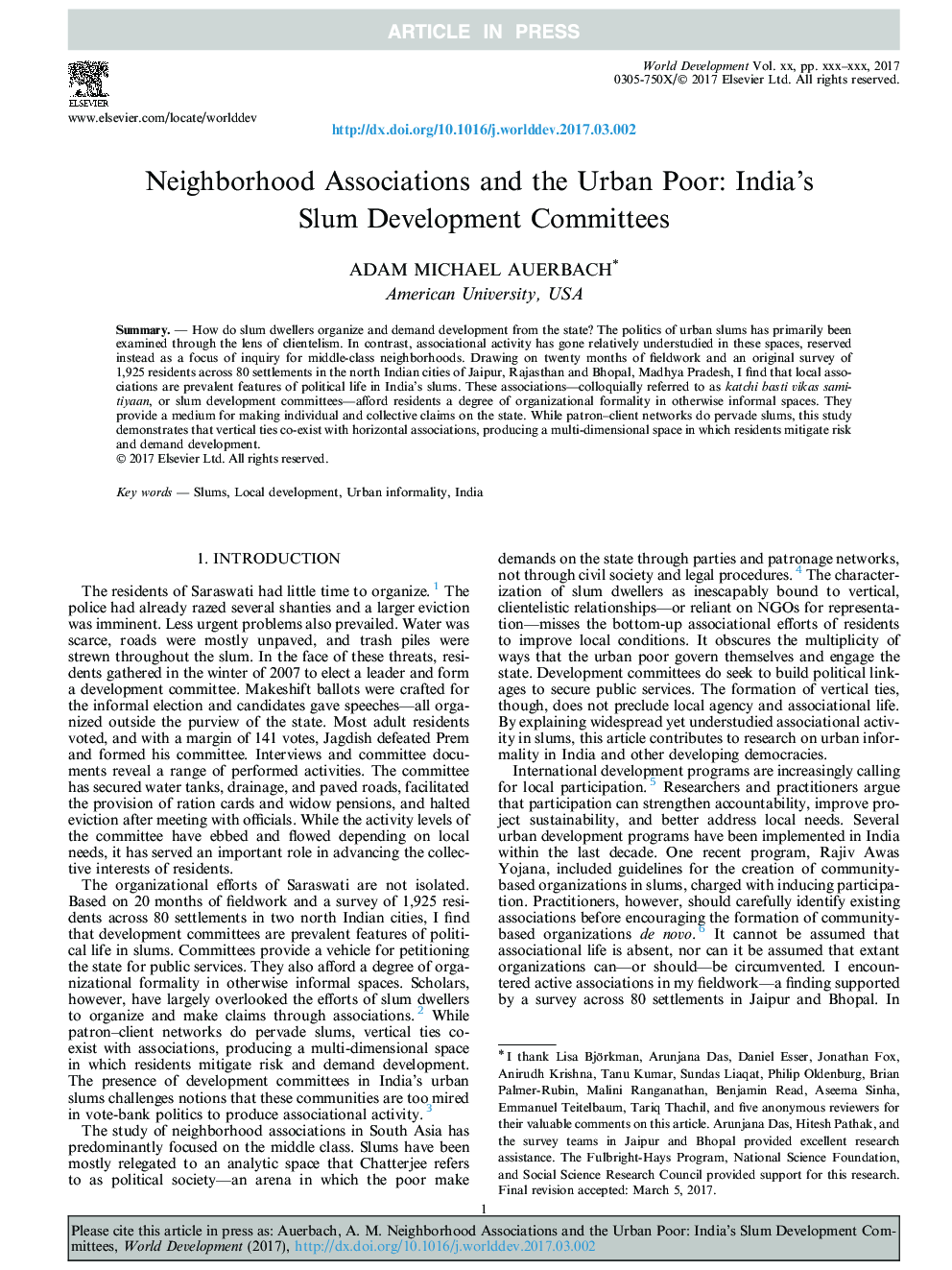| Article ID | Journal | Published Year | Pages | File Type |
|---|---|---|---|---|
| 5105052 | World Development | 2017 | 17 Pages |
Abstract
How do slum dwellers organize and demand development from the state? The politics of urban slums has primarily been examined through the lens of clientelism. In contrast, associational activity has gone relatively understudied in these spaces, reserved instead as a focus of inquiry for middle-class neighborhoods. Drawing on twenty months of fieldwork and an original survey of 1,925 residents across 80 settlements in the north Indian cities of Jaipur, Rajasthan and Bhopal, Madhya Pradesh, I find that local associations are prevalent features of political life in India's slums. These associations-colloquially referred to as katchi basti vikas samitiyaan, or slum development committees-afford residents a degree of organizational formality in otherwise informal spaces. They provide a medium for making individual and collective claims on the state. While patron-client networks do pervade slums, this study demonstrates that vertical ties co-exist with horizontal associations, producing a multi-dimensional space in which residents mitigate risk and demand development.
Related Topics
Social Sciences and Humanities
Economics, Econometrics and Finance
Economics and Econometrics
Authors
Adam Michael Auerbach,
